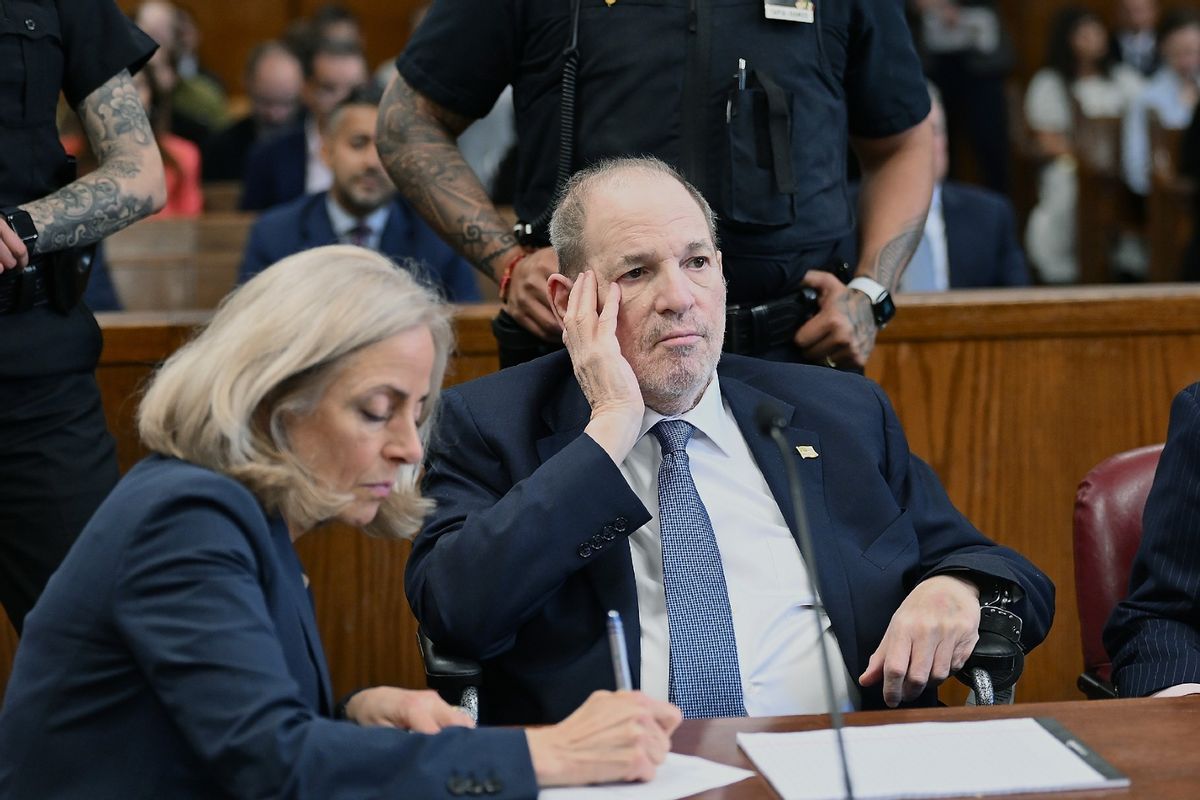The Manhattan District Attorney's Office will put Harvey Weinstein on trial again for rape allegations, after the highest court in New York overturned his conviction last week.
In court Wednesday, Judge Curtis Farber presided over arguments to retry the case, remanding 72-year-old Weinstein and ordering a trial after Labor Day.
Weinstein was one of the earliest figures found guilty for serial sexual abuse in the #MeToo movement, originally sentenced to 23 years in prison in New York. He was later found guilty in California for similar crimes, convictions which have not been overturned.
The New York Court of Appeals struck down the initial conviction, citing Judge James Burke’s decision to allow testimony from Weinstein’s victims that they found to be outside the scope of the trial. New York prosecutors said they will take the case back to court.
“There was nothing consensual about this conduct,” prosecutor Nicole Blumberg said. "We believe in this case and will be retrying this case."
Prosecutors from Manhattan District Attorney Alvin Bragg's office will once again make the case that Weinstein committed first-degree sexual assault and third-degree rape.
Weinstein’s attorney, Arthur Aidala, championed the overturn and told reporters Wednesday that Weinstein was confident in his chances in a new trial.
#MeToo leaders decried the appeals court’s decision last week, including Ashley Judd, who pointed out “institutional betrayal” in the verdict. Judd said that subjecting victims to another trial could inflict even more harm.
"Courtrooms are not healing spaces," Judd previously told CBS Mornings. "They are traumatizing spaces and victims should not have to perform their trauma in order to find peace.”



Shares